News
-
 Earth
EarthGassy farm soils are a shockingly large source of these air pollutants
California’s farm soils produce a surprisingly large amount of smog-causing air pollutants.
-
 Archaeology
ArchaeologySharp stones found in India signal surprisingly early toolmaking advances
Toolmaking revolution reached what’s now India before Homo sapiens did, a new study suggests.
By Bruce Bower -
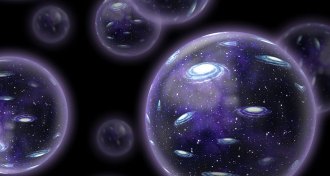 Astronomy
AstronomyUniverses with no weak force might still have stars and life
An alternate universe that lacks one of the four fundamental forces might still have galaxies, stars, planets and perhaps life, a new study suggests.
-
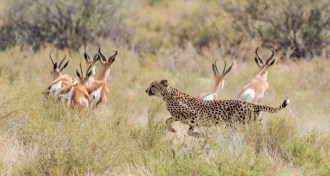 Animals
AnimalsSlower speed, tricky turns give prey a chance against cheetahs and lions
A bonanza of data on wild predators running shows that hunting is more than sprinting.
By Susan Milius -
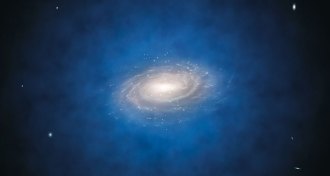 Particle Physics
Particle PhysicsClumps of dark matter could be lurking undetected in our galaxy
Dark matter, assumed to form featureless blobs, might clump together into smaller objects.
-
 Earth
EarthLife may have been possible in Earth’s earliest, most hellish eon
Heat from asteroid bombardment during Earth’s earliest eon wasn’t too intense for life to exist on the planet, a new study suggests.
-
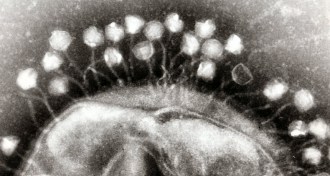 Genetics
GeneticsScientists find 10 new defense systems used by bacteria
Scientists identify 10 groups of genes that appear to govern defense systems used by bacteria against virus attacks.
-
 Anthropology
AnthropologyAn ancient jaw pushes humans’ African departure back in time
If an ancient jaw found in an Israeli cave belongs to Homo sapiens, the humans left Africa tens of thousands of years earlier than we thought.
By Bruce Bower -
 Earth
EarthOverlooked air pollution may be fueling more powerful storms
The tiniest particles in air pollution aren’t just a health threat. They also strengthen thunderstorms, new research suggests.
-
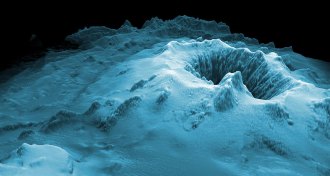 Earth
EarthRobots map largest underwater volcanic eruption in 100 years
High-resolution mapping of a 2012 underwater volcanic eruption just goes to show there’s a lot we don’t know about deep-sea volcanism.
-
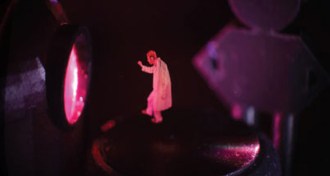 Tech
TechLasers trace a new way to create hovering hologram-like images
Hovering 3-D images pave the way for futuristic displays that could be used for education or entertainment.
-
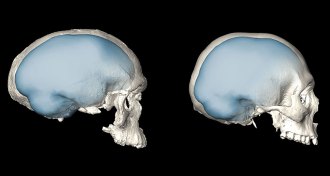 Anthropology
AnthropologyHuman brains rounded into shape over 200,000 years or more
Ancient humans’ brains slowly but surely became round, scientists say.
By Bruce Bower